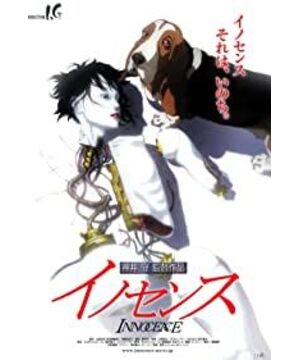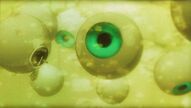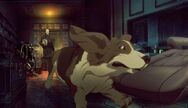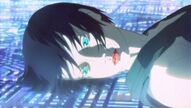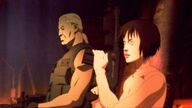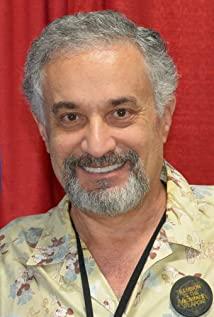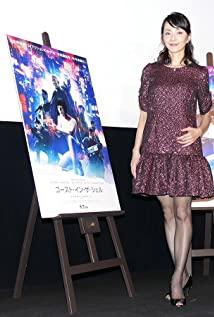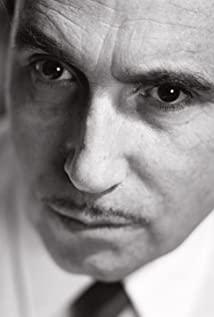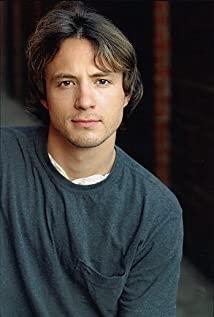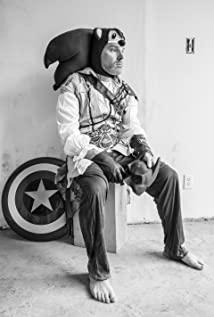The first Ghost in the Shell explored human nature and concluded that human nature, or the soul, is the basis of human self-recognition and the operating mechanism of the superego.
So the second step, Ghost in the Shell, explored more in-depth topics, how does the superego work, and the grand question of the worldview.
The whole Ghost in the Shell 2 is a confrontation process of worldview. It firmly believes in the matter of supremacy, which is what we call atheism, and firmly believes that "life and death come, shed puppets, when the line is broken, they will fall apart." Then here is the worldview. Above, what follows is the scientific discussion of consciousness and soul, and the robotic transformation of human beings. The complete prosthesis of human beings, therefore, the doll creates two extremely sacred existences, one is a completely unconscious existence like a skylark, and the prosthetic person who completely logicalizes consciousness. This place is very interesting. The reason why keeping the human brain can’t be the best is because of human’s pursuit of "cognition" and the lack of human cognition. This is the fundamental understanding of natural law. It jumps out of the search for God’s help and completely relies on it. Science has become the way to the best. And this kind of perfection, due to the adjustment of ethical laws, makes "cognition" move towards the paradox of destruction and self-destruction, which is the absurdity and end of the atheistic worldview.
Another straight line of the world view is the theistic world view, emphasizing the unique value of the soul. Therefore, Shao Zuo of Ghost in the Shell and Smith in The Matrix can be regarded as the difference between soulless and soulless. Smith, as a product of the matrix gap, breaks away The soul caused the increase in power, so that it became the culprit of the destruction of the system, and the soulful Shao Zuo, and only retained the superego Shao Zuo, became a being close to the perfection, a being without concern, but in the dark Protect Bart and the human world, and always tell the truth about affairs of different kinds.
Next is the logic of sin in the film. This is an extremely complex and profound part. The "materialistic" soul logic that is considered to be the supreme good, transforms humans into humans or pours souls into puppets. Based on the inability of the soul to be copied, the method of kidnapping children to extract souls and creating ghosts is inherently sinful, and from the perspective of "theism", this infinite amplification of human abilities and the creation of ghosts Simulation is a terrible paranoia, a sinful act.
On the other hand, people must be guilty. Bart said in the Northern City that “things created by individuals will have the same genetic factor expression form as individuals.” Therefore, whether it is a person, such as a creative waiter robot, or according to a human Killing robots created by the will, like humans, are all sinful. This is the sin of origin caused by "cognitive greed."
"Atheism" believes that it clearly sees the value of life and death, and recognizes the finiteness of human cognition. It transforms humans into humans and pursues infinity in the flesh. At least the spirit has reached infinite logical possibilities. This is the materialism of Jin Yi. reason. This is also the first conversation with Kim in Lucas.
What follows is the second paragraph of the dialogue with Togusa, the only person who is completely human. This is a self-criticism of the first dialogue, which directly denies the possibility of human beings and thinking machines, and even Darwin’s theory of evolution. . Both the first dialogue and the second dialogue have been interrupted and ended. We can regard the first dialogue as the first trial. This is the self-judgment. It is an acknowledgment of extreme arrogance and “cognition”. Knowing the destruction of the infinitely longing self, in this dialogue, the gold representing the self is dead; the second dialogue is the second judgment, it is the self-judgment, to reflect that the self that I represent is threaded in the second dialogue; The third dialogue is a superego trial. Bart, represented by Ghost, was shot in the head in the third dialogue, but before the third dialogue ended, Bart escaped under Shaozu’s rescue, allowing the superego to continue and the two to be able to Survive. After surviving, the representative of the superego, Barthes, revealed the three signs of sin. "I don’t want to see but don’t see." This is self-indulgence and the sin of the id. It completely abandons the concept of sin and acts in conformity with the id; "Never do it" is self-compromising, it is the sin of self, and does not change after reflection; "not listening" is self-giving up, the sin of the superego, it is listening to the call of the superego without being able to change, followed by destruction. Isn't this exactly what Jesus Christ revealed in the Bible about the sins and weakness of mankind? This is the embodiment of Togusa in the film, a weak human being who is self-reflection but still unable to change.
Ghost in the Shell 2-Innocence completely broke the illusion of human beings reaching the state of perfection through the infinite accumulation of knowledge (memory in the film, which also represents science), and also denies that human self-reflection can wash the guilty soul. The film is called Innocence, and it is actually a trial of guilt of the human species.
What is the innocence? These are the two things on the movie poster: the animal who is completely immersed in the joy of "ignorance" and the young man who exists completely as the superego. The rest of the people are all "guilty" without exception. It also includes you and me watching the movie.
"There is no righteous person, not even one. There is no one who understands; there is no seeker for God; all stray from the right path and become useless together. There is no one who does good, not even one." (New Testament Romans 3:10- 12)
View more about Ghost in the Shell 2: Innocence reviews


